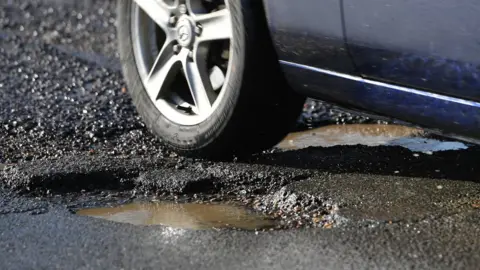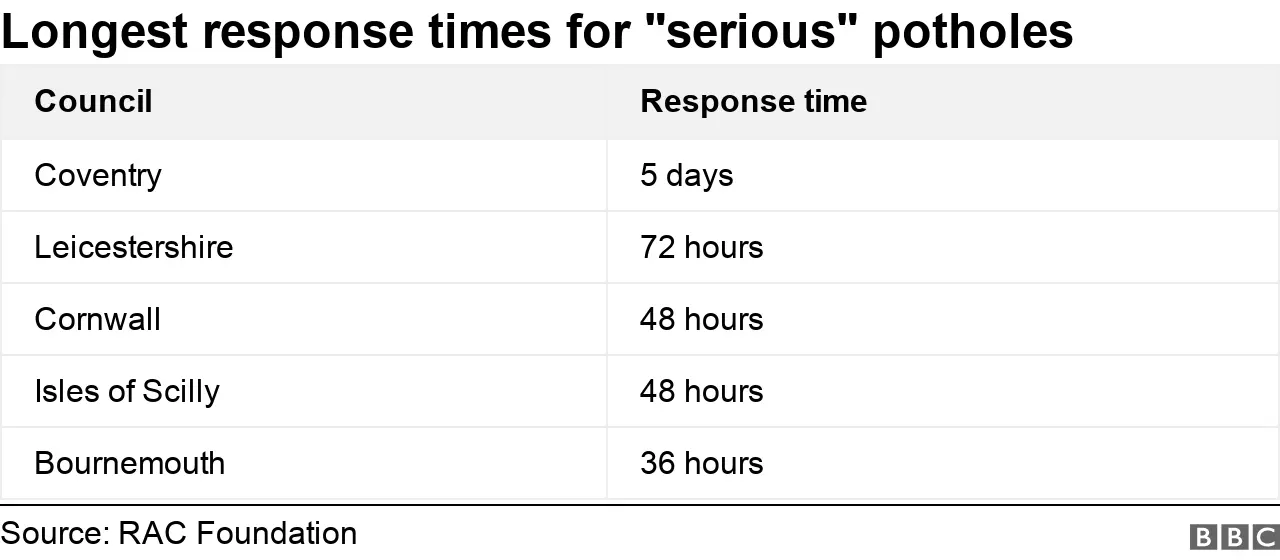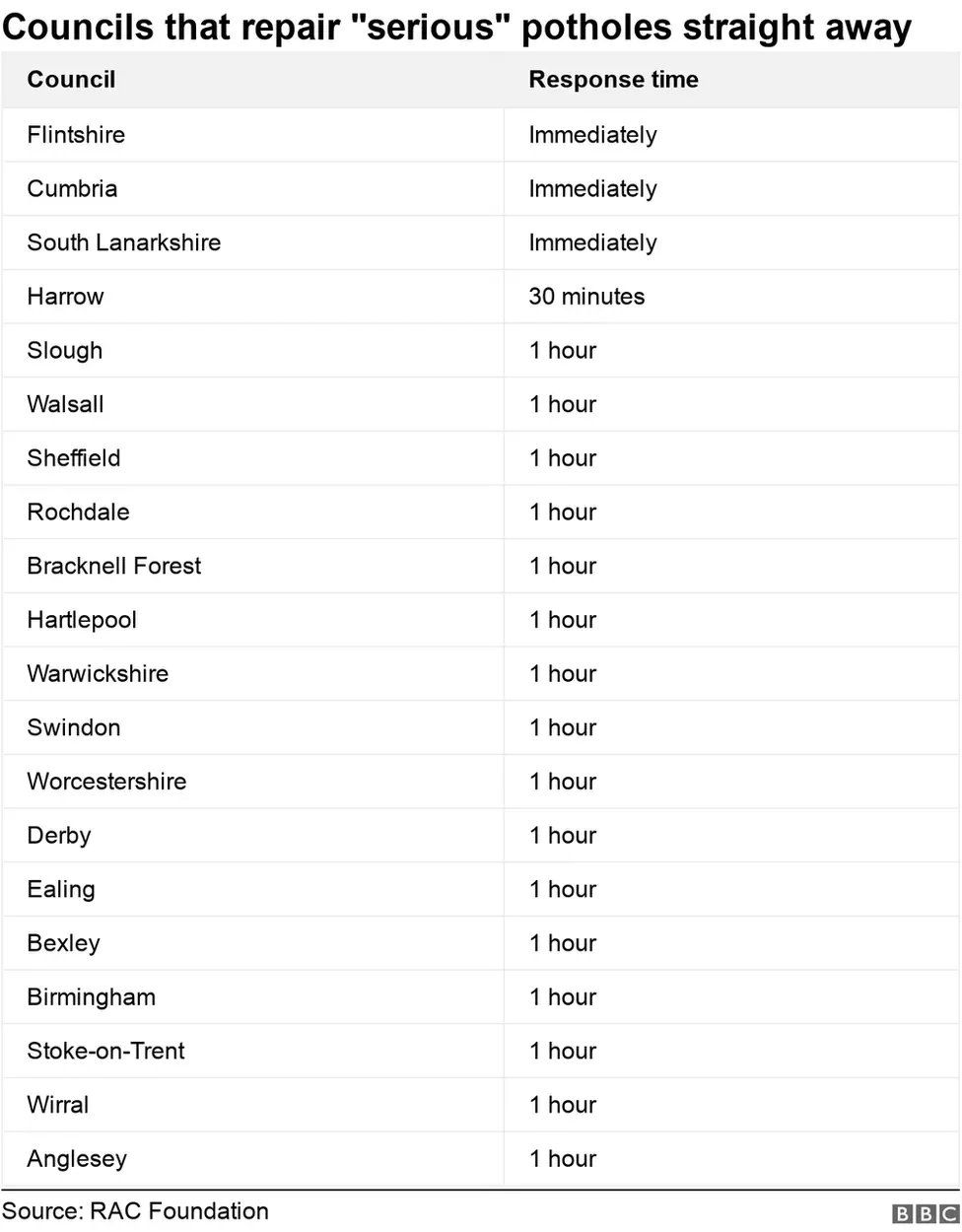Coventry City Council is UK's slowest to fill potholes
Coventry City Council has the longest response time in Britain for filling in serious potholes, new research has revealed.
Figures released by motoring charity the RAC Foundation show the authority aims to make road repairs within five working days.
Cumbria, Flintshire and South Lanarkshire councils try to act "immediately" to sort out defects.
Coventry City Council said it had a "good track record on road repairs".
Information on its "five working day response" also appears on the council's website - but the authority told the BBC they would visit potholes which pose a "danger" within two hours.
The figures are based on Freedom of Information (FOI) data provided by about 190 of the 207 local highway authorities in Britain.
According to the research, Harrow Council has a target repair time of half an hour, while a further 16 councils aim to patch things up within an hour.
 PA
PAThe RAC said response times are influenced by how many miles of road a council has to manage and the size of the council area.
The most common response time is two hours, with 79 local authorities looking to repair their roads within this period.
RAC Foundation director Steve Gooding said: "It is understandable that large rural authorities set themselves longer response times, simply as a result of having to travel further to effect repairs, but motorists might still be surprised to see such a wide variation across the country.
"Those particularly vulnerable to potholes - cyclists and motorcyclists - might ask whether the speed of pothole investigation should be based solely on the risk to users."

Information on Coventry City Council's website refers to repairing potholes more than 40mm deep "within five working days".
Neil Cowper, head of highways for Coventry City Council, said "where a pothole is a danger to pedestrians and other traffic users we act as soon as we can get officers to the site, usually within two hours".
He added: "There have been many cases where, on investigation, a pothole has been coned off immediately and an officer has stayed on site to ensure that the area is made safe."
Mr Cowper said the council also had "a team of inspectors who monitor our roads and pavements and they respond quickly to reports of serious defects".
The council also questioned the wording of the FOI request and how the RAC compiled their statistics.


The RAC said they found local highway authorities adopted a "risk-based approach" to fixing road defects with the volume of traffic and mix of road users taken into account when deciding how quickly to act.
Almost all authorities set minimum sizes for potholes before they will take action, which vary from 20 to 30mm deep at 37 councils to at least 50mm at 26 others.
Martin Tett, the Local Government Association's transport spokesman, said: "Keeping roads safe for all users is one of the most important jobs councils do and is reflected in the fact that local authorities are fixing a pothole every 21 seconds, with priority given to repairing potholes that pose the greatest risk based on their size and location, as recognised in this report."
He added that councils need "consistent and fairer government investment in local road maintenance".
